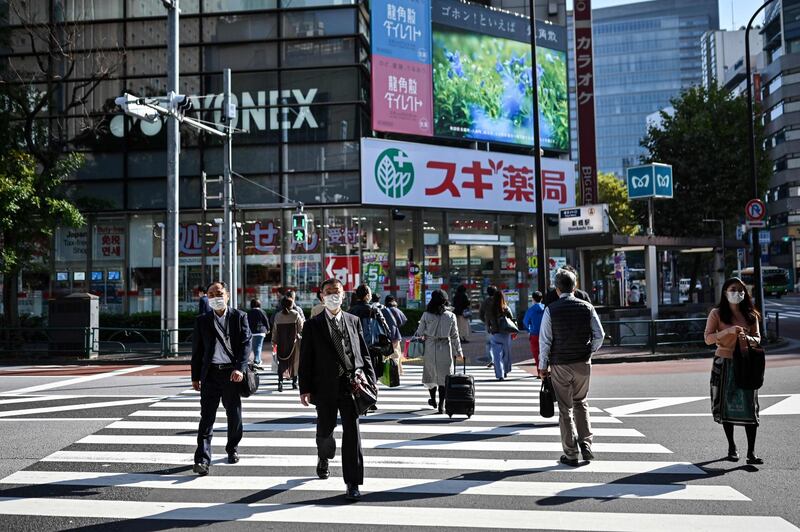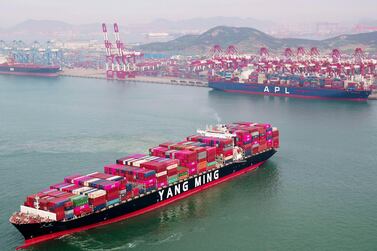Japan’s economy rebounded more strongly than expected from its record crash during the pandemic as businesses reopened, trade roared back and government stimulus helped fuel a jump in consumer spending.
Gross domestic product grew an annualised 21.4 per cent in the three months through September from the prior quarter, the Cabinet Office said Monday, reporting the fastest growth since 1968. Economists had forecast an 18.9 per cent expansion.
Japan’s biggest growth spurt in more than a half century shows the economy is back on a recovery path after three straight quarters of contraction that started with a sales tax hike last year before the collapse that came with Covid’s first wave.
Still, the strong expansion only managed to claw back a portion of the lost growth that economists say will take years to recoup. A surge in virus cases at home and abroad is likely to weigh heavily on the recovery this quarter.
Last quarter’s rebound was driven by improved trade with the US and China, a comeback for the auto industry and a jump in household spending as the country reopened from a five-week state of emergency and the government encouraged domestic travel. Weak business investment held back the overall growth pace.
The recovery’s speed now depends largely on the path of the virus, as many countries head into winter. New waves slamming
the US and Europe threaten Japanese trade. At home, case numbers are also hitting new records and, though the spread is moderate compared to other places, authorities are hinting at stricter restrictions.
“Government measures like Go-To Travel subsidies helped boost consumption, but what concerns me is business investment fell more than I expected,” said economist Harumi Taguchi at IHS Markit, adding that a resurgence of the virus could keep a lid on growth through March.
“As the virus spreads again, companies are cutting back on hiring and, once government measures expire, low wages may weigh on consumption.”
Concern the economy will lose steam last week prompted Prime Minister Yoshihide Suga to call for a third extra budget. New spending would add to Japan’s mountain of debt, but it’s seen as needed with the boost weakening from the government’s earlier cash handouts and funds for a job furlough programme largely used up.
“The risk for another wave of infections is rising — new confirmed cases hit a daily high of 1,661 on November 12, double the daily average of 809 in the week ended November 6. This could prompt a gradual reapplication of containment measures later — impeding the recovery and reducing the effectiveness of fiscal stimulus,” said Bloomberg economist Yuki Masujima.







